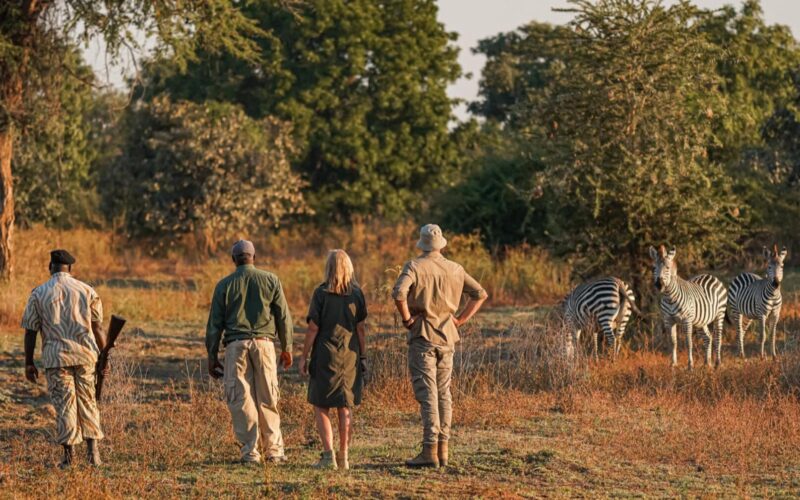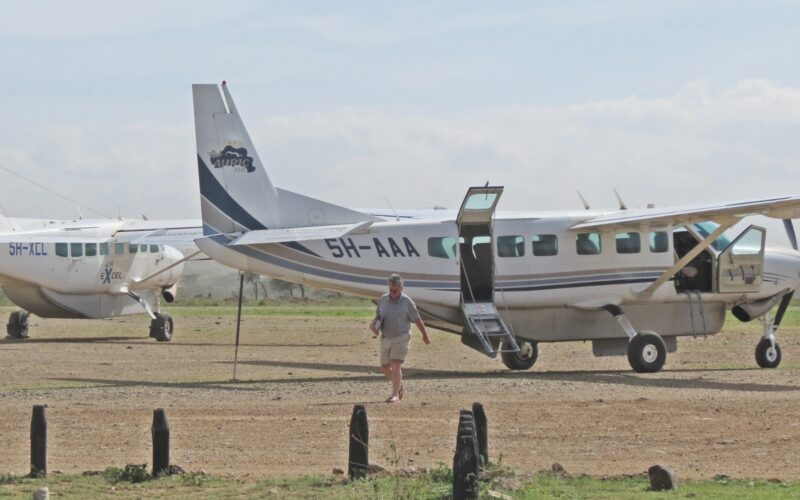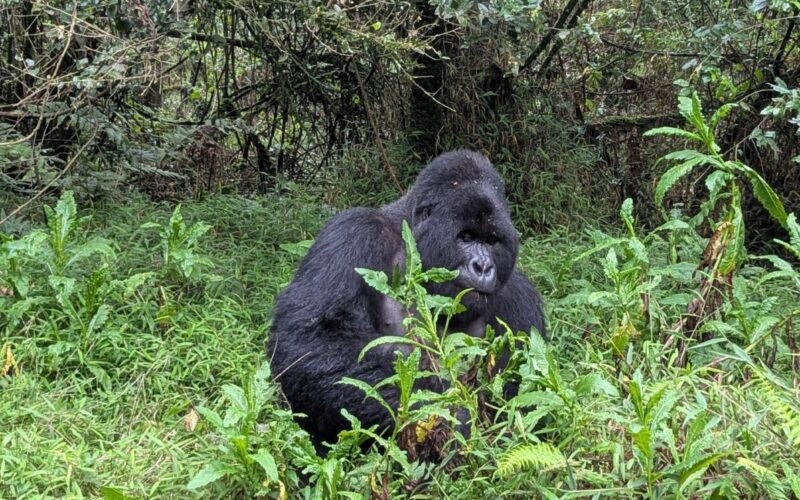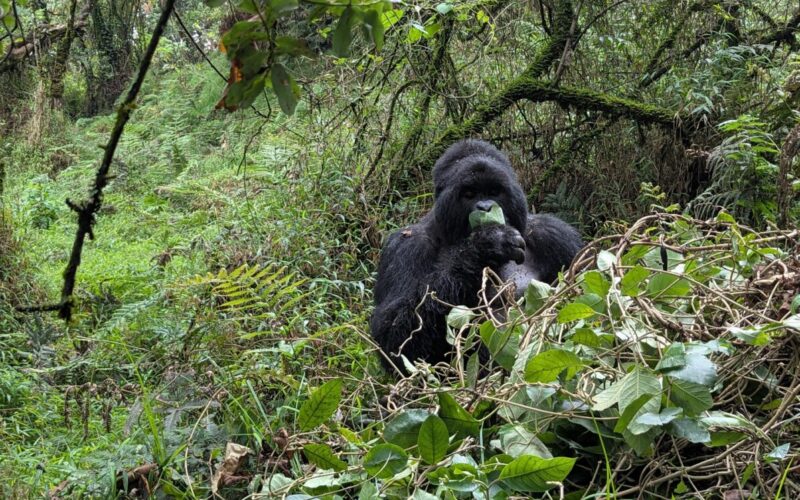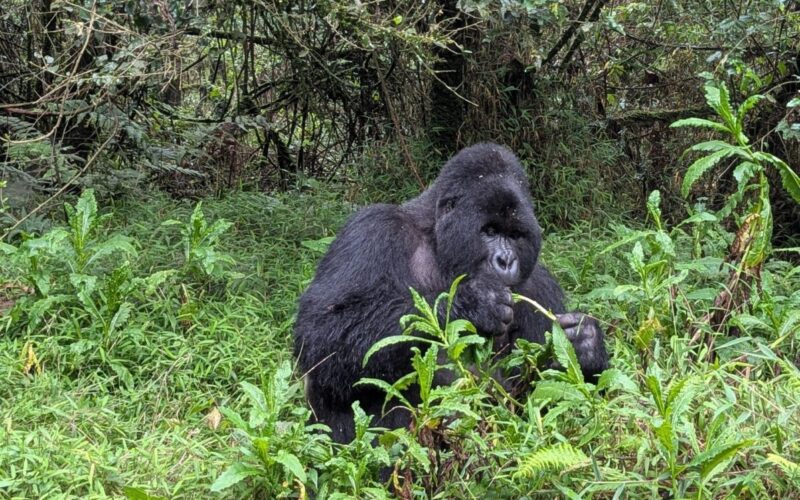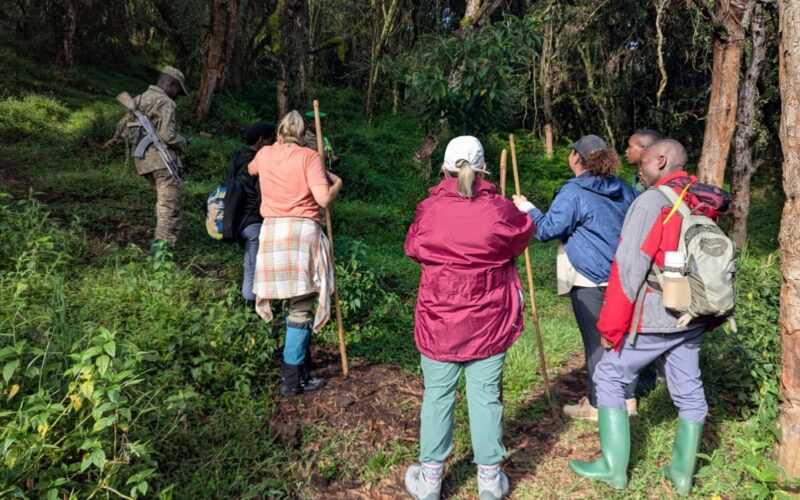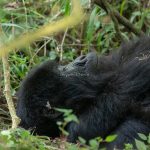
Is Uganda or Rwanda Better for Gorilla Trekking?
February 20, 2025
Is It Safe to Go Gorilla Trekking in Uganda?
February 20, 2025Why is Gorilla Trekking So Expensive?
Understanding the Cost of Gorilla Trekking in Uganda and Rwanda
Why is Gorilla Trekking So Expensive? Gorilla trekking in East Africa is one of the most sought-after wildlife experiences in the world. The allure of observing mountain gorillas in their natural habitat draws thousands of visitors annually, yet few understand the reasons behind the significant costs of this adventure. A standard gorilla trekking permit in Rwanda costs approximately USD $1,500 for international travelers, while in Uganda, it averages USD $800. These prices reflect far more than a simple tourism fee; they are the backbone of global conservation efforts and local community development initiatives.
The high cost ensures mountain gorillas, one of the planet’s most critically endangered species, receive constant protection, medical monitoring, and habitat preservation. Gorilla trekking is unique because it combines adventure tourism with intensive ecological stewardship. Unlike typical wildlife safaris, where animals can be observed from a distance, gorilla trekking allows visitors close encounters, which requires strict regulation to minimize human impact. The fees also guarantee that the trekking experience remains sustainable, limiting visitor numbers, supporting local economies, and maintaining pristine forest environments for generations to come.
For travelers considering Uganda Gorilla Trekking or Rwanda Gorilla Trekking Safari, understanding these financial dynamics is essential. It clarifies why permits are costly, why access is limited, and how these fees contribute to broader conservation and community initiatives. Beyond monetary investment, these fees provide travelers with a rare opportunity to participate directly in protecting a species whose very existence hangs in the balance.
Conservation and Protection of Mountain Gorillas
Endangered Status
Mountain gorillas are among the rarest primates on Earth, with roughly only 1,000 individuals remaining in the wild. Their critically endangered status places them at risk from habitat loss, human conflict, and disease. Gorilla trekking permits are an essential source of funding to maintain the delicate balance of the ecosystems where these primates reside. By paying the permit fee, travelers contribute to the survival of these species and help secure their habitats against encroachment and deforestation.
Every permit sold directly supports programs designed to monitor gorilla populations. Scientists and rangers rely on consistent financial backing to conduct health checks, track family groups, and intervene when necessary to prevent disease or injuries. In a way, each visitor contributes to the continuation of research initiatives that deepen global understanding of primate behavior, social dynamics, and conservation strategies.
Constant Monitoring
Daily monitoring and tracking of gorilla families are crucial. Rangers traverse dense forests, sometimes hiking for hours or even days, to ensure that each gorilla group is safe from threats. They observe the animals’ health, movements, and social interactions, documenting vital data that informs conservation policy. These operations are labor-intensive and require specialized skills, equipment, and logistical support. Without these resources, gorilla populations would be far more vulnerable to poaching, disease outbreaks, and habitat destruction.
In addition, scientists and veterinarians perform routine health checks to detect illnesses early. This proactive approach helps prevent diseases from decimating gorilla populations and ensures that the animals remain resilient in a changing environment. The high cost of permits directly funds this continuous effort, making each trekking experience not only an adventure but also a contribution to global conservation.
Habitat Protection
The forests and volcanic landscapes where gorillas live are fragile ecosystems. Permit fees contribute significantly to protecting these habitats, supporting reforestation programs, anti-poaching patrols, and the maintenance of national parks such as Bwindi Impenetrable Forest in Uganda or Volcanoes National Park in Rwanda. Habitat protection ensures that gorillas have safe, sufficient territory to thrive, while also preserving the biodiversity of the region, including rare birds, other primates, and plant species.
Maintaining these habitats requires constant investment. Trail maintenance, ranger patrols, and wildlife monitoring systems are essential to prevent degradation, human encroachment, and illegal activities. By trekking these forests, visitors indirectly fund these vital conservation measures, ensuring that mountain gorillas and their ecosystems endure for future generations.
Demand and Limited Access
High Demand
The rarity of mountain gorillas drives significant global interest. Each year, thousands of wildlife enthusiasts, photographers, and adventure travelers flock to Uganda and Rwanda to participate in gorilla trekking experiences. This demand naturally increases the cost of permits.
The exclusivity of the experience ensures that visitors receive a meaningful and safe encounter with gorilla families. It also prevents overcrowding, which could stress the animals and damage the forest environment. High demand paired with limited availability allows conservationists to maximize revenue for protection efforts while safeguarding the quality of the visitor experience.
Restricted Access
To maintain minimal human impact, only a limited number of trekking permits are issued each day. Each group of trekkers typically spends just one hour with a gorilla family, carefully timed to minimize stress and disturbance. In some cases, for habituation experiences, treks may last up to four hours, but even then, groups are small, and time with the gorillas is controlled.
Restricted access also ensures that rangers and guides can manage the trekking experience safely. This controlled interaction allows for higher-quality encounters, where visitors can observe natural behaviors without interfering. It also maintains ethical standards in wildlife tourism, reinforcing the integrity of the conservation model.
Community Benefits of Gorilla Trekking
Local Revenue Sharing
A portion of all gorilla trekking permit fees is allocated to communities living near national parks. These funds support schools, health centers, clean water projects, and local infrastructure development. By sharing revenue, national park authorities foster goodwill, creating incentives for communities to protect gorilla habitats and engage actively in conservation initiatives.
The revenue-sharing model also promotes sustainable tourism practices. Local residents gain economic benefits, reducing reliance on activities like logging, hunting, or farming that could harm gorilla habitats. This integration of conservation with community development ensures that gorilla protection efforts are socially and economically sustainable.
Community Involvement
Permit fees empower local communities to participate in tourism operations. Many villages near Bwindi and Volcanoes National Parks offer cultural experiences, such as traditional dances, craft workshops, and guided tours. These programs give visitors a deeper understanding of local culture while creating alternative livelihoods for residents.
By actively involving communities in tourism, Uganda and Rwanda have created a collaborative model where conservation and community prosperity go hand in hand. Local engagement strengthens protection efforts and fosters a sense of pride in the natural heritage surrounding the parks.
Funding Allocation for Gorilla Conservation
Critical Conservation Funding
The majority of the permit fees are dedicated to critical conservation efforts. This includes funding anti-poaching patrols, maintaining ranger stations, and supporting wildlife research. Every permit sold directly contributes to the survival of mountain gorillas, ensuring that they have adequate protection from poachers and environmental threats.
Funds also support veterinary interventions when gorillas face health risks. Conservation teams conduct regular monitoring, administer vaccinations if necessary, and respond to emergencies, all of which require ongoing financial investment. By paying the permit fee, visitors become part of a global effort to secure the future of these endangered primates.
Park Operations and Research
Beyond direct gorilla care, permit fees support national park operations and research initiatives. Trails must be maintained, visitor centers staffed, and logistical support provided for guides and trackers. Additionally, conservation research benefits from permit revenue, enabling long-term studies of gorilla behavior, social structures, and habitat use.
This financial model ensures that gorilla trekking is sustainable, ethical, and beneficial for both wildlife and human communities. Travelers can appreciate that every dollar contributes to a system designed to protect endangered species while providing unforgettable wildlife experiences.
Understanding the True Value of Gorilla Trekking
Gorilla trekking is expensive because it is a conservation-driven, high-demand, and highly controlled experience. Fees fund intensive monitoring of endangered mountain gorillas, protect their fragile habitats, and provide sustainable revenue for local communities. High costs also regulate visitor numbers, ensuring that trekking remains ethical, safe, and minimally invasive.
Investing in a Uganda Gorilla Trekking Safari or Rwanda Gorilla Trekking Tour offers more than a wildlife adventure; it is a direct contribution to protecting one of Earth’s most rare and remarkable species. Travelers witness extraordinary primate behavior, experience lush rainforest ecosystems, and participate in a global conservation effort.
Booking with a trusted operator like Deks Tours ensures that every permit, accommodation, and activity contributes directly to these efforts while providing a seamless, high-quality adventure. By understanding why gorilla trekking is so expensive, visitors can approach the experience with appreciation for its ecological, cultural, and ethical significance.
Secure your Uganda or Rwanda Gorilla Trekking Safari today and join the growing community of global travelers who invest in conservation, adventure, and authentic African experiences. Witness the mountain gorillas, engage with local culture, and leave a positive impact on the environment you explore.


